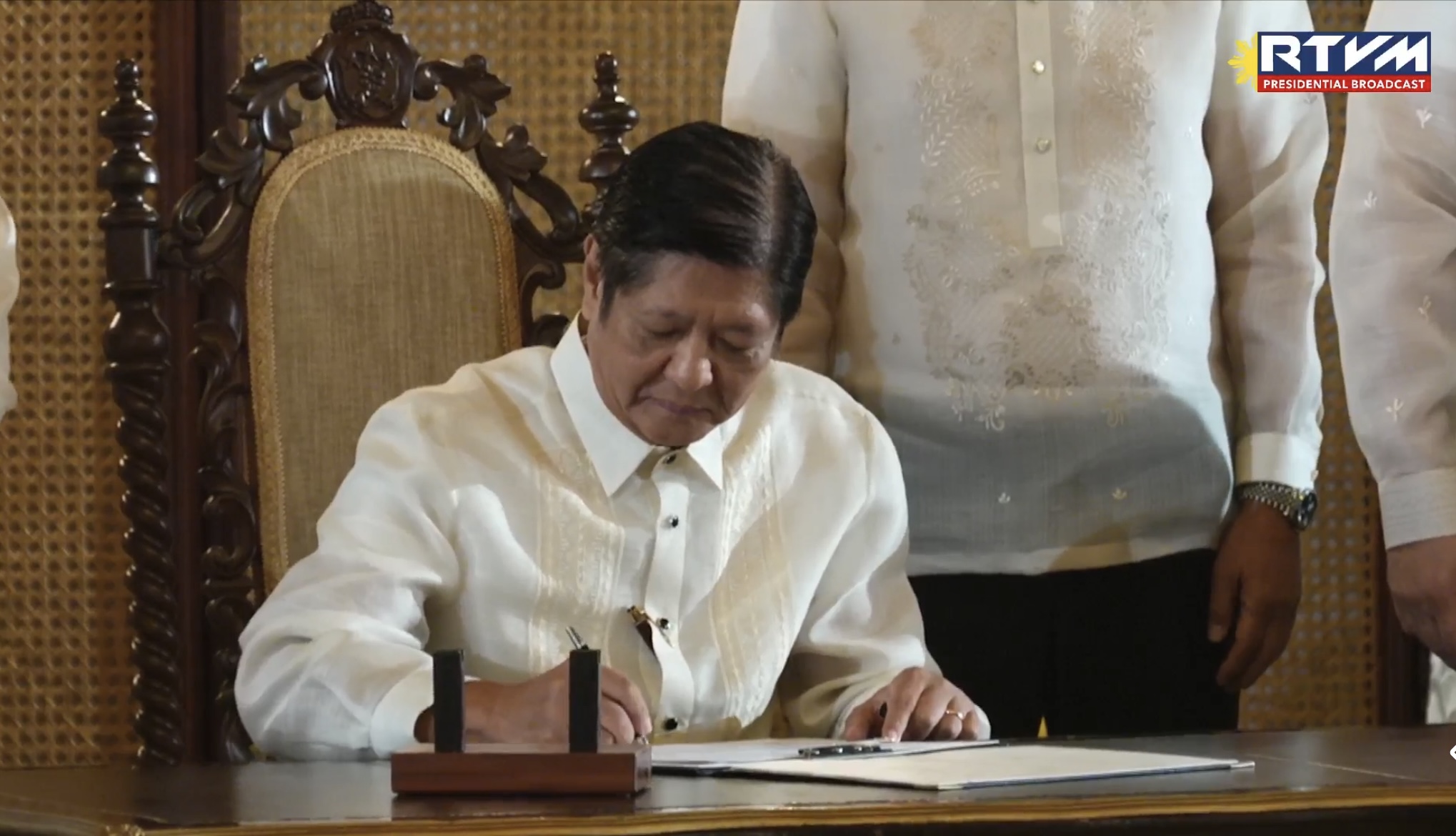Bersamin: Marcos 'thoroughly reviewing' items in GAA to ensure constitutionality

President Ferdinand "Bongbong" Marcos Jr. is "thoroughly reviewing" the proposed 2025 General Appropriations Bill to make sure that it conforms to the Constitution, Executive Secretary Lucas Bersamin said Thursday.
"The President and the Cabinet are RIGHT NOW (with or without the calls) thoroughly reviewing the various items of the GAA [General Appropriations Act] to make them conform to the Constitution, and to see to it that the budget prioritizes the main legacy thrusts of the Administration," Bersamin said in a viber message to reporters.
"The President has been most prudent in programming and spending of our limited fiscal resources," added Bersamin.
Marcos is expected to sign the P6.352-trillion proposed national budget for next year on December 30, 2024.
"Signing on 30 December 2024 after the Rizal Day program in Manila," said Presidential Communications Office acting Secretary Cesar Chavez earlier this week.
The bill was initially set to be signed on December 20, but it did not push through "to allow more time for a rigorous and exhaustive review."
Bersamin previously said that "certain items and provisions of the national budget bill will be vetoed in the interest of public welfare, to conform with the fiscal program, and in compliance with laws."
Senator Juan Miguel Zubiri on Wednesday reiterated the need to address the possibly unconstitutional provisions in the proposed 2025 General Appropriations Bill.
"I'm hoping that they address the concerns of the education sector, especially the funding of the computerization of the [Department of Education], and the possible unconstitutionality of the education sector no longer being the priority of the budget allocation as well as the zero funding for PhilHealth," Zubiri said in a Viber message.
"That would help stave off possible legal action in the Supreme Court that might render a decision declaring the budget unconstitutional and therefore delay its implementation and effectivity," he added.
Allocations
The President's sister, Senator Imee Marcos, also previously expressed her opposition to the signing of the budget bill.
"Like a thief on the night before New Year!" Senator Imee said in a text message.
"Unless they have a different way of computing budgetary allocations for education, dapat tapyasan nila ng at least P188 [billion] ang public works para hindi ma-violate ang Constitution. So there may be at least P188 [billion] worth of rewards sa (in the) unprogrammed [appropriations] for the old ye faithful," she said.
(Unless they have a different way of computing budgetary allocations for education, they should reduce the at least P188 billion proposed budget for public works so they won't violate the Constitution.)
"If the President does line item veto, they cannot use the [appropriations] of the items vetoed to fund or augment other items in the budget. They will have less projects to fund which may translate to a deficit lower than what was originally programmed, [which] may be a good- or maybe bad... thing, depending on who's counting," Senator Imee said.
Among the items that she had criticized are the P26 billion for the controversial Ayuda sa Kapos ang Kita Program or AKAP, zero subsidy for Philippine Health Insurance Corporation (PhilHealth), the increase in the budget of the Department of Public Works and Highways to P1.1 trillion, and the reduction in the budget of the Department of Education, particularly in its computerization program.
Reenacted budgets
Section 25 (7), Article VI of the 1987 Constitution states that if by the end of any fiscal year Congress failed to pass the General Appropriations Bill (GAB) for the ensuing year, the General Appropriations Act (GAA) for the preceding year shall be deemed reenacted and shall remain in force and in effect until the GAB is passed by Congress.
Fiscal years 2001, 2004, and 2006 all had reenacted budgets, according to the Department of Budget and Management.
There were also partial reenacted budgets in fiscal years 2003, 2005, 2008, and 2009, the DBM added.
The Senate and the House of Representatives earlier ratified the bicameral conference committee report on the GAB, which retained the P733-million budget of the Office of the Vice President; reduced the budget of the Department of Education by P10 billion; and allocated P26 billion for the Ayuda para sa Kapos and Kita Program (AKAP).
Under the Constitution, the President could veto provisions of the budget bill.
Senate Minority Leader Aquilino "Koko" Pimentel III, a former Senate President and a lawyer, had said that ordinary measures vetoed by the President are considered outrightly rejected.
Article VI, Section 27(2) provides that the President can "veto any particular item or items in an appropriation, revenue, or tariff bill, but the veto shall not affect the item or items to which he does not object." This is what deemed by lawmakers as ''line-item veto.''
EXPLAINER: How the President's veto works on the national budget
—VAL, GMA Integrated News




